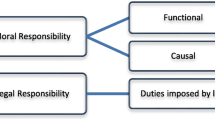Abstract
The benefits of arbitration as a form of alternative dispute resolution in business to business disputes, particularly international business to business disputes, are well recognized and will be discussed in this article. Concerns arise, however, where arbitration is sought to be imposed as a method of dispute resolution upon consumers, through the inclusion of arbitration clauses in consumer contracts. Whilst there is a body of literature which argues strongly against the enforceability of arbitration clauses in consumer contracts, there is little consideration in the literature as to the possible benefits of consumer arbitration which might warrant enforceability within particular regulatory boundaries. To date, the pro-arbitration stance taken by some commentators and courts is premised on freedom of contract arguments rather than consumer benefit. This article will explore whether it is possible to overcome a number of the current concerns regarding the use and enforcement of consumer arbitration clauses through constructing a regulatory framework which will give rise to a fair alternative dispute resolution mechanism for consumers. The article will begin by exploring the current context which includes limitations upon the arbitrability of consumer disputes in a number of jurisdictions. It will then go on to consider what might be the benefits of facilitating consumer arbitration as a mechanism for alternative dispute resolution, particularly in the context of international consumer disputes. The article will then outline a range of concerns regarding the perceived unfairness of consumer arbitration and will draw upon current and potential regulatory models to consider ways of addressing those concerns. The article will conclude with recommendations for a regulatory model designed to facilitate fair consumer arbitration.
Similar content being viewed by others
Notes
See for example AT&T Mobility v Concepcion 131 S Ct 1740 (2011); and American Express Co v Italian Colors Restaurant 133 S Ct 2304 (2013).
P.L. 90–321, 82 Stat.146.
Dell Computer Coorp v Union des Consommateurs [2007] 2 S.C.R. 801, 2007 SCC 34 (Supreme Court of Canada, 13 July 2007).
Article 3.1.
Article 1 (q).
Section 6 Swedish Arbitration Act 1999.
See Section 91 Arbitration Act 1996 (UK); Section 1031(3) German Civil Procedure Law.
See also discussion in the Australian Government Productivity Commission report 2014 regarding the need for “alternative mechanisms to improve equity and access to justice and achieve lower cost civil dispute resolution” (at p. 5).
Business to Consumer.
For an example of a strict and narrow application of the unconscionability doctrine see the Australian High Court decision in Australian Competition and Consumer Commission v CG Berbatis Holdings Pty Ltd and Others (2003) 197 ALR 153; [2003] HCA 18.
See for example the decision in Subway Systems Australia Pty Ltd v Aaron Ireland and Lynette Ireland [2014] VCSA (Victorian Court of Appeal decision- judgement delivered 1 July 2014) where the court considered that “court” in article 8 of the UNCITRAL Model Law as adopted into the Australian State-based Commercial Arbitration Acts and the Australian International Arbitration Act 1974, included the Victorian Civil and Administrative Tribunal. Note that the Victorian government has set up a consultation on the definition of “court” in the Commercial Arbitration Acts, and has received submissions on the point, including a submission from the Law Council of Australia that section 8 of the Commercial Arbitration Act 2011 (Vic) should be amended to specifically include tribunals such as small claims tribunals as being amongst the entities required by section 8 to enforce arbitration agreements. For the reasons expressed in the body of this article, the author would regard this as an unfortunate outcome.
18 financial service providers failed to comply with FOS determination between 1 January 2010 and 1 January 2014: http://www.fos.org.au/the-circular-special-issue-april-2014/fos-forum/unpaid-determinations/
Consider for example a clause suggested by the Institute of Arbitrators and Mediators Australia for use in industry members’ consumer contracts: “Any dispute under, or arising out of, this contract shall be referred to the Institute of Arbitrators and Mediators Australia, for resolution under the Rules of the (Trade Body or Association) Consumer/Industry Dispute Resolution Scheme. Each case will first be referred to a Conciliator appointed by the Institute unless either party wishes to proceed directly to arbitration. If the conciliation is not satisfactorily concluded within 6 weeks or if the parties want to proceed directly to arbitration, the Institute will appoint an Arbitrator who will make a final and binding award.”
References
Barr, M. (2015). Mandatory arbitration in consumer finance and investor contracts. New York University Journal of Law and Business, 11(4), 793–817.
Blackaby, N., Partasides, C., Redfern, A., & Hunter, M. (2015). Redfern and hunter on international arbitration (6th ed.). Oxford: Oxford University Press.
Born, G. (2014) International commercial arbitration (2nd ed.). Dordrecht: Kluwer Law International.
Brown, M. (2013). Do class actions benefit class members? An empirical analysis of class actions. Available at https://www.mayerbrown.com/files/uploads/Documents/PDFs/2014/December/DoClassActionsBenefitClassMembers.pdf.
Cole, S. (2013). The federalization of consumer arbitration: Possible solutions. The Federalization of Consumer Arbitration: Possible Solutions, 2013(1), 271–327.
Consumer Financial Protection Bureau. (2015). Arbitration report. Report to congress, pursuant to Dodd-Frank Wall Street Reform and Consumer Protection Act s 1028(a).
Consumer Financial Protection Bureau. (2016). CFPB Considers Proposal to Ban Arbitration Clauses that Allow Companies to Avoid Accountability to Their Customers, http://www.consumerfinance.gov/newsroom/cfpb-considers-proposal-to-ban-arbitration-clauses-that-allow-companies-to-avoid-accountability-to-their-customers.
Cortes, P. (2011). Online dispute resolution for consumers in the European Union. London: Routledge.
Del Duca, L. (2014). Consumer financing pre-dispute mandatory arbitration: Consumer financial protection bureau (CFPB) developments. Uniform Commercial Code Law Journal, 46, 71–92.
Drahozal, C. (2001). “Unfair” arbitration clauses. University of Illinois Law Review, 3, 695–790.
Drahozal, C., & Zyontz, S. (2009). An empirical study of AAA consumer arbitrations. Available at http://ssrn.com/abstract=1365435.
Eidenmueller, H., & Fries, M. (2013). Against false settlement: Designing efficient consumer rights enforcement systems in Europe. Available at http://ssrn.com/abstract=2290654 or http://dx.doi.org/10.2139/ssrn.2290654.
Eisenberg, T., Miller, G., & Sherwin, E. (2008). Arbitration summer soldiers: An empirical study of arbitration clauses in consumer and non consumer contracts. University of Michigan Journal of Law Reform, 41(4), 871–896.
Hofmann, N. (2015). The role of ADR institutions: Mere secretariat or supervisory body- lessons learned from institutional arbitration. In M. Sturner, F.G. Inchausti, & R. Caponi (Eds.), The Role of Consumer ADR in the Administration of Justice: New Trends in Access to Justice under EU Directive 2013/11 (pp. 103–114). Sellier European Law Publishers.
Inchausti, F. (2015). Specific problems of cross border consumer ADR: What solutions? In M. Sturner, F.G. Inchausti & R. Caponi (Eds.), The role of consumer ADR in the administration of justice: New trends in access to justice under EU Directive 2013/11 (pp. 31–58). Munich: Sellier European Law Publishers.
Lampley, R. (2015). “Underdog” arbitration: A plan for transparency. Washington Law Review, 90, 1727–1781.
Moses, M. (2014). Challenges for the future: The diminishing role of consent in arbitration. Loyola University Chicago School of Law Research Paper No. 2014-014. Available at SSRN: http://ssrn.com/abstract=2479426.
Radin, M. (2014). Boilerplate. A threat to the rule of law? In L. Austin & D. Klimchuk (Eds.), Private law and the rule of law (pp. 288–305). Oxford University Press.
Sovern, J., Greenberg, E., Kirgis, P., & Liu, Y. (2014). “Whimsy little contracts” with unexpected consequences: An empirical analysis of consumer understanding of arbitration agreements. St John’s University School of Law Legal Studies Research Paper Series, 14-0009. Available at http://ssrn.com/abstract=2516432.
Sturner, M. (2015). ADR and adjudication by state courts: Competitors or complements? In M. Sturner, F. G. Inchausti, & R. Caponi (Eds.), The role of consumer ADR in the administration of justice: New trends in access to justice under EU Directive 2013/11 (pp. 11–30). Munich: Sellier European Law Publishers.
Szalai, I. (2013). Correcting a flaw in the arbitration fairness act. Journal of Dispute Resolution, 2, 271–300.
Van Heerden, C.M., & Barnard, J. (2011). Redress for consumers in terms of the consumer protection Act 68 of 2008; a comparative perspective. Journal of International Commercial Law and Technology 6. Available at SSRN http://ssrn.com/abstract=2763500.
Von Segesser, G. (2015). Inoperability of arbitration agreements due to lack of funds? Revisiting legal aid in international arbitration. Kluwer Arbitration Blog. Kluwerarbitrationblog.com 17 January.
Ware, S. (2015) The politics of arbitration law and centrist proposals for reform. Available at http://ssrn.com/abstract=2646276 or http://dx.doi.org/10.2139/ssrn.2646276.
Acknowledgments
The author wishes to sincerely thank the anonymous reviewers for the extremely detailed and helpful feedback and suggestions.
Author information
Authors and Affiliations
Corresponding author
Rights and permissions
About this article
Cite this article
Wilson, T. Setting Boundaries Rather than Imposing Bans: Is it Possible to Regulate Consumer Arbitration Clauses to Achieve Fairness for Consumers?. J Consum Policy 39, 349–364 (2016). https://doi.org/10.1007/s10603-016-9322-z
Received:
Accepted:
Published:
Issue Date:
DOI: https://doi.org/10.1007/s10603-016-9322-z




